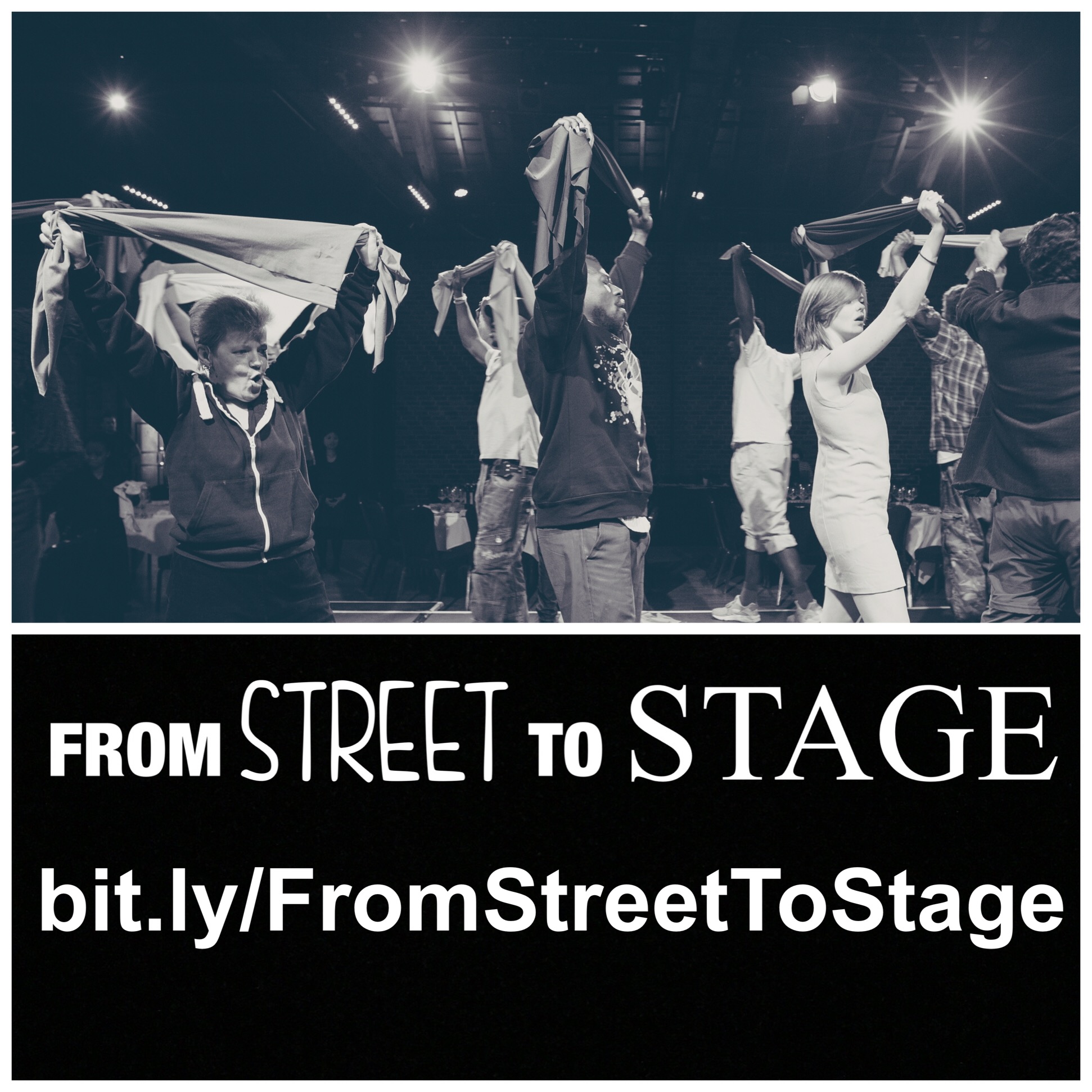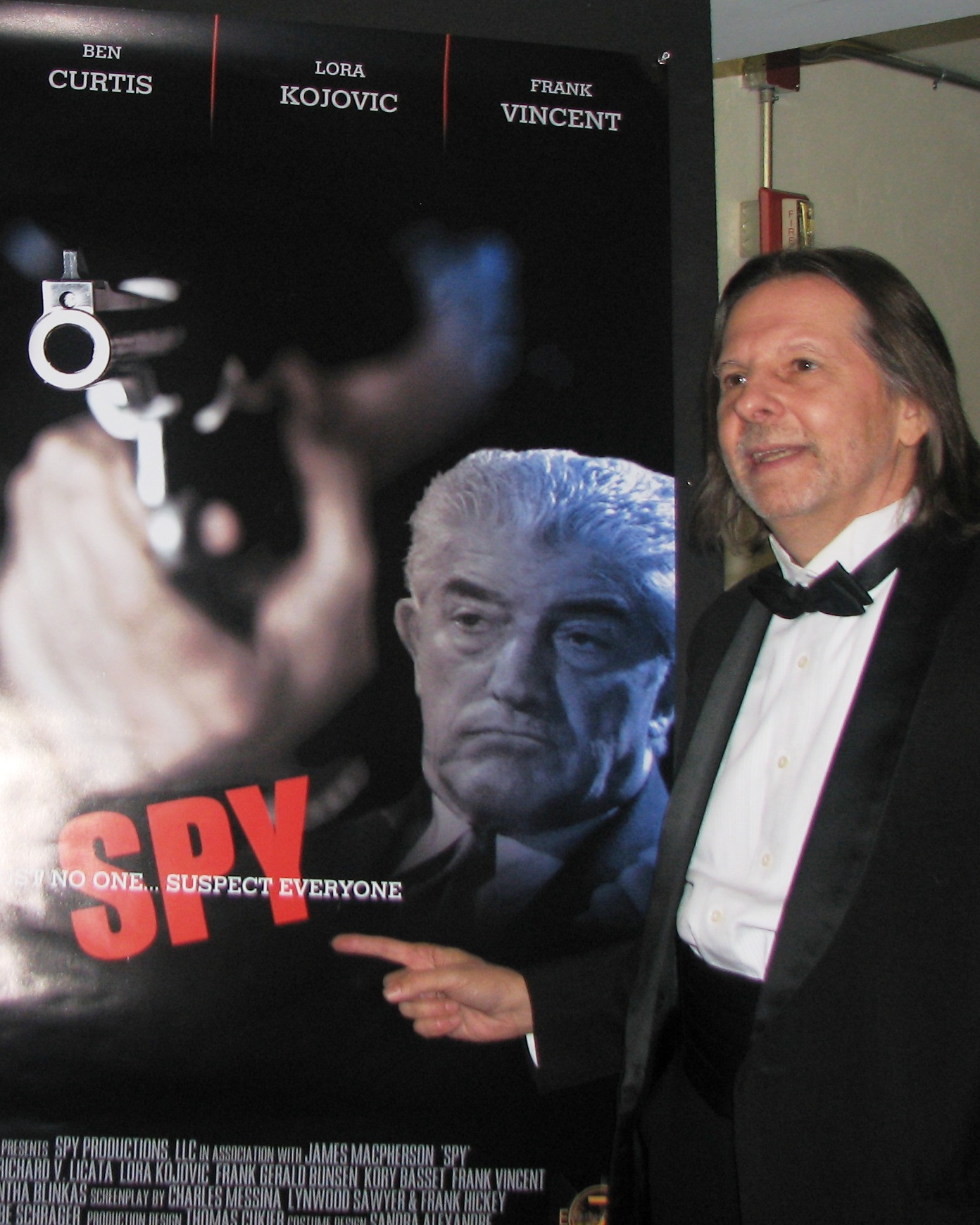ASK & DISCUSS
INDEXHow to best team up with charities and organisations to maximise the impact of your documentary?
12 years, 8 months ago - Laura Shacham
As documentary filmmakers, it’s so often the case that charities and other organisations are interested in the issues that our films raise. Whether you’re making a campaigning film like End Of The Line or something less so, like Bombay Beach, turning to charities to help look at the issues that are raised in the films is a great way to get extra exposure and turn your film into more. My first film, In Prison My Whole Life was the first film that Amnesty International had supported internationally and we worked to try and build a campaign around the film's topics, but I felt that we could have really tried to build in this relationship from the very beginning.
We're a couple of months away from setting off on a 5-week road trip across the USA, shooting, editing and releasing two films a week out of an RV. Our project's called One For Ten (check out www.oneforten.com) and we're heading off to tell the stories of ten people who each spent an average of ten years each locked up and facing death for crimes they didn't commit. They were all innocent and all victims of wrongful convictions.
We've been working with a coalition of charities to help raise awareness of the project right from the beginning, and we’ve found that working with organisations like this is really helpful in reaching a wider audience right from the start. As our project will be distributed live and free, they are able to help us get the films out to as wide an interview as possible. We’ve also found that they can help connect you to interested media partners and, all importantly, they've helped us find contributors as well.
At London Short Film Festival's "BritDoc Presents: Other Ways Out" event with Doc/Fest's Charlie Philips and BritDoc's Luke Moody last Tuesday, the need for organisation support for social issue docs was highlighted again and again. This got us thinking - are there were other ways that a charity's support can be helpful that we haven’t thought about and have people had any bad experiences going down this path, whether that's to do with creative freedom or lack of engagement from the organisation?
Only members can post or respond to topics. LOGIN
Not a member of SP? JOIN or FIND OUT MORE
12 years, 6 months ago - Michael Chandler
Trish raises some really good points from the charity perspective, above.
I've got some further similar suggestions, with my 'charity manager' hat on, at my blog - primarily about what I as a charity manager am looking for in a film-maker or their proposal, before supporting the project.
This considers things such as being aware of the charity and its cause, issues around exploitation, as well as sensitivity towards any participants you would work with as a film-maker.
The post is primarily about documentary filmmakers, but some does apply to fictional films as well.
Blog post is here; http://fuzzlafilms.wordpress.com/2013/03/17/film-making-with-charities-pt-2/
12 years, 7 months ago - Robert Stern
As well as the editorial and marketing advantages of hooking up charities, filmmakers should also consider its potential in helping with the hardest bit of documentary filmmaking – raising the money.
From The End of The Line's collaboration with WWF to Project Wild Thing's link with the National Trust, this is becoming increasingly common.
Doing my research before launching my latest crowdfunding project, I consulted Doc/Fest's Charlie Philips about how such collaborations were now perceived by broadcasters, and was assured that the 'debate' on whether broadcasters perceived this as editorially compromising is now history, and no longer seen as an issue.
What about the practical advantages of hooking up with charities for indirect help with fundraising - (as opposed to them actually giving you money, something they're understandably reluctant to do in this straitened times no matter how much the film may reflect their values).
After lengthy discussions with one charity, I decided to take a slightly different tack with my latest project. Observing that the subject of the documentary (Ben Law, 'the man who built his house in the woods' off Grand Designs) had a broad appeal to different communities – woodland, sustainability and eco-architecture – I thought it might be more effective to form a looser association with a variety of charities rather than a closer partnership with just one.
You can see the results at www.kickstarter.com/projects/2006361025/ben-laws-woodland-year, the crowdfunding campaign I just launched. It features the logos of 10 different charities, publications and professional organizations, each adding their own message of support.
Will this multiply the power of charity collaboration, or dilute it?
I have no idea, but the great merit of crowdfunding is its transparency, so one way or another we'll find out by the time the campaign ends on March 31st.
Robert Stern.
12 years, 5 months ago - Michael Chandler
Just a few further thoughts from me regarding working with charities - and in particular working on projects for charities.
I've been fortunate to have worked with a number of charities on user engagement projects - projects engaging with the charity's target client group to make music, drama, theatre pieces and films. In these cases, you become less a film-maker, more a facilitator, with the participants becoming the film-makers. However, whilst these may result in films that are not entirely 'yours' in vision, content and direction, they can produce films that are more heartfelt and insightful; they can provide a unique and authentic insight into the lives of those you are working with and supporting… And it may lead to more links with that charity, or with their media contacts.
A few examples of the amazing experiences I've had on these projects are here:
http://fuzzlafilms.wordpress.com/2013/04/12/film-making-with-charities-pt-3/
12 years, 7 months ago - David Graham Scott
Hope this doesn't look like shameless self-promotion but I made a short docu quite a few years ago that might be of interest to you, Laura. It's called Hanging with Frank and is about one man's memories of working in a prison's condemned cell and execution chamber in the 50s. Watch it here: https://shootingpeople.org/watch/43269/hanging-with-frank
Many regards and good luck with your very worthy documentary project,
David x
12 years, 8 months ago - Lynwood Shiva Sawyer
Hey, Laura, Congratulations! Let me know if you're passing through New York or North Carolina and I'll hook you up with some filmmakers there. Sounds like it's going to be a wonderful project. Break a reel!
12 years, 7 months ago - Michael Chandler
Very interesting post - and with experience from both sides, as a film-maker as well as someone who manages charities and charity projects, it has prompted several thoughts from me. I won't go into real detail here, as I've done three longer posts about it (the first one is here: http://fuzzlafilms.wordpress.com/2013/02/05/film-making-with-charities-part-1-what-to-expect/). These look at what to expect from the film-maker's perspective; the charity's perspective (and some tips for film-makers trying to engage with charities); and some further alternative ideas about how to work with charities.
But I can and have really seen the benefit and potential - and I think you've really highlighted a lot of the key benefits in how you've successfully worked with charities yourself. Charities are becoming increasingly aware of the power of film, particularly over the last decade with an increase in campaigning documentaries. The immediacy of films and ease of sharing these days are an amazing promotional tool for charities.
But, I think its important to stress, there are limits to how much or what type of support a charity can support. Money and resources are increasingly scarce for many charities, and they don't work in the same way as corporates looking for innovative ways to promote their brand. I've personal experience of trying to raise a small amount of money from a number of major charities for a film project- and despite universal interest in the project, I failed dismally! However, that's not to say some further benefits can't come from building a strong relationship with charities. And I have had a fair amount of great experiences doing projects with charities, such as user involvement film projects, where the films have been led by the participants themselves.
On the questions you raised around lack of engagement and creative freedoms- in my experience, this really varies depending on the charity and their cause. Some are more protective of their 'brand' than others. One indicator of this may be the size of the organisation, and its existing reputation. Another would be the degree of engagement and support a charity is providing. I have experienced both a large charity that, having funded the project entirely, wanted their message, logo, branding, font type and statistics included throughout. And I have also produced two short campaign dramas for another international charity where they were almost the opposite- having been involved in the script and the casting, they were then fairly hands off the remainder of the film-making process. I personally feel there should be a limit to how much a charity can legitimately curtail your creative freedom, unless they're paying or supporting your film directly. It sounds like you have a coalition of charities who are supporting your project from the outset, in which case I'd anticipate there may be expectations.
And, as you mention, they may also be able to provide contributors- eg hard-to-gain access to the very people with experiences you may want to make your film about. On this note, I also have a few suggestions from the other side. Having led charities and charity projects, for both national charities and smaller local ones, I've experienced being approached by film-makers who would like access to some of our clients. And there are issues as well as benefits here too, for both sides. I often find I am reassured by a film-maker that is aware of the sensitivity needed when working with vulnerable people; has an approach that is passionate and believes in the cause; understands the need for full consent; and has a realistic idea from the outset about where the film will end up (and how that in turn may impact on the participants).
I could go on - and I do, on my blog (as mentioned, http://fuzzlafilms.wordpress.com/2013/02/05/film-making-with-charities-part-1-what-to-expect/). Needless to say its an area I'm really passionate about and think has a huge amount of potential, for both parties, if managed correctly. Thanks for flagging it up, it's a great way of working, and one which should be further considered by all film-makers making 'issue-based' films. I'd be keen to hear other people's experiences too.
12 years, 6 months ago - Trish Davidson
Laura thank you for posting this discussion, I have only just read, filmmakers and charities collaborating I know from experience to be a positive working relationship.
Unchosen have been raising awareness of the still existence of 21st Century Slavery here in UK and Ireland for the past five years successfully through the media of film/documentary. In 2008 there was little British material available on slavery, it was very much focused on the third world. Now the tides have changed and many new Documentaries and Feature films have been appearing on the UK market. 99% of the directors or production teams that we request permission to screen from, on a not for profit basis, and as an educational tool, do grant us permission . Unchosen are therefore aware and grateful for the generosity of filmmakers who lean towards issue lead messages as they willingly share their material.
Unchosen have been asked on several occasions to support films, in particular sex trafficking, by requesting the use of our logo, plus a brief comment in the Titles. …. The charity sector in particular is now using social media to best effect and therefore film makers are interested in connecting for the PR which they will definitely get. It rightly becomes a win win situation.
The challenge for Unchosen is, until we have seen a film or read a script we are unable to commit, we need to know if a film intends to carry a political message , whether the content portrays the criminal issue in a voyeuristic way, or portraying dark humour , or extreme violence and rape. Why, this type of approach may make for an excellent thriller, or shock factor for a large commercial audience, all of which are not useful from a campaigning point of view. We cannot afford to back anything that will dent the credibility of our message, or be supported by any organisation that has slaves within their chain, as the media would have a field day calling us hypocrites, quickly loosing our standing within our field.
Trying to ask for money from a charity to support the making of a film is I would say almost impossible, because of the difficult financial climate. I really wish we could.
For these and many more reasons we made the decision to launch our own Human Trafficking Shorts Film Competition, which we did last month. Unchosen Patron Ken Loach is supporting our competition, along with Encounters Short Film and Animation Festival. The winning material will then go on to be used through out 2014 in UK and Ireland as an educational tool for front line workers.
As we all know film is succinct , gets a message across in a clear and easy fashion to a large cross section audience, who then go on to do something.
Please partner a charity, you will gain huge publicity from it, we print thousands of flyers every year listing the films we use within a campaign. Our website also gets thousands of hits a month, any director using a charity will raise the profile of their work, that I know to be true with the added advantage of gaining respect from within the sector and being the first to be approached for media launches in some great places.
Hope you have found this useful
www.unchosen.org.uk
12 years, 7 months ago - John Lubran
Brilliant Laura! A really excellent project and I hope it will be a good experience too. I did something similar in 1998, not in terms of being worthy but in terms of methodology. We made a film called 'Trucking USA', as much about the sub culture as the trucks. Our four person crew lived moved and worked out of a 30 foot motor home for nine weeks over 12,000 miles across 26 states. The great thing with the USA is the excellent infrustucture for living in an RV. A huge selection of RV parks mostly providing 'full hook up' for electric, water and sewage means it really is comfortable. We were using great tanks of camera kit based on Betacam SP but no doubt you'll be using much more manageable kit. Don't forget to plan for power adaption and you should have got an 'I' visa from the embassy to make dealing with the authorities, especially at the border, easier. If I can help with any specifics please don't hesitate to ask. mv@movingvision.co.uk






